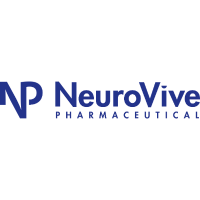
NeuroVive Pharmaceutical AB, the mitochondrial medicine company, announced that molecules in its NVP015 programme have demonstrated positive effects in experimental models of genetic mitochondrial disease and that a lead compound has been selected. The lead was selected based on tolerability, plasma stability and organ delivery, specifically to the brain, and will now be taken into further in vivo experimental efficacy studies and preclinical development.
The objective of NeuroVive’s NVP015 programme is to develop a treatment option for patients with genetic mitochondrial diseases, such as Leigh Syndrome and MELAS, when acute cellular energy support is needed, such as during an ordinary infection. These patients are at risk of further deterioration in their disease and symptoms during such energy crisis.
“We are very pleased with the progress in the NVP015 program which, together with our KL1333 program, shows our strong commitment to the development of novel treatments for genetic mitochondrial diseases,” commented Magnus Hansson, M.D., Ph.D., chief medical officer and VP of Preclinical and Clinical Development at NeuroVive.
NeuroVive collaborates with Dr. Marni Falk’s research lab at the Children’s Hospital of Philadelphia (CHOP) to evaluate the NVP015 compound class. Top line data from these studies demonstrates that the compounds exert beneficial effects in experimental C. elegans models of genetic mitochondrial disease. Approximately 50 per cent of genetic mitochondrial disease patients have a complex I dysfunction (isolated or in combination with other defects) in the mitochondria. Complex I dysfunction occurs when the first of the five complexes in the mitochondrial respiratory chain fails to function normally, resulting in the mitochondria being unable to generate enough cellular energy, ATP.
“This is a breakthrough which takes us a step closer to our goal of developing a therapy for acute energy crisis situations in genetic mitochondrial disease patients. Currently, patients with these types of genetic mitochondrial disorders can only be offered symptomatic treatment alternatives, whereas the aim of the NVP015 program is to create a drug that can bypass the dysfunction, helping the mitochondria to function properly,” said Eskil Elmér, M.D., Ph.D., chief scientific officer and VP of Discovery at NeuroVive.
Neurovive’s, genetic mitochondrial, programme nvp015, reaches significant milestone